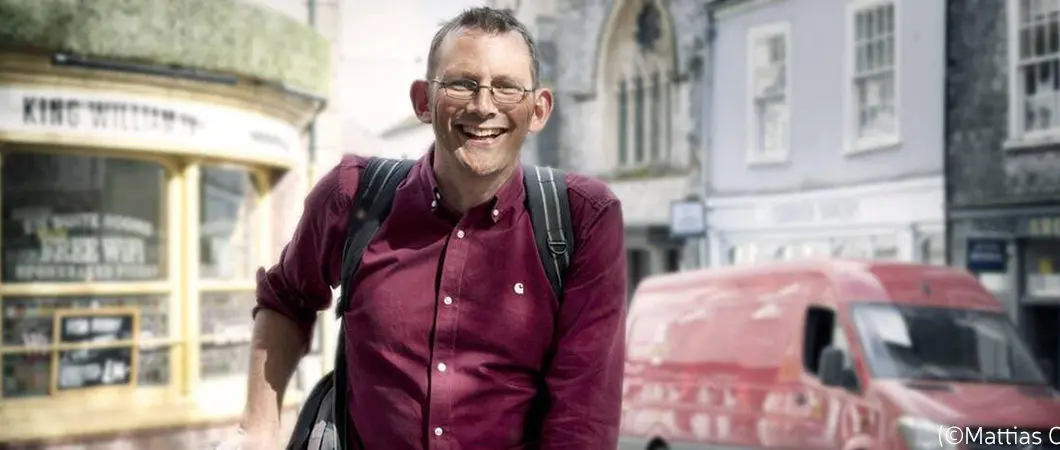How to respond to the climatic & social emergency with creativity & enthusiasm: Rob Hopkins was at Montpellier Business School for the Transition Tour

Welcoming Rob Hopkins to respond to the emergency
On February 5th, Montpellier Business School had the honour of welcoming Rob Hopkins, founder of the world movement of Cities in Transition, thanks to the Chair in Social Entrepreneurship & Inclusion and the Magazine Sans Transition.
“The objective is that a figure of social, economic and environmental transition like Rob Hopkins can share his experience on the importance of imagining, collectively, a positive future for all” explains Dr Walid Nakara, holder of the Chair & Deputy Director of the Yunus Center of Montpellier Business School.
The positive dimension was however, from the start, challenged by the inventory of the climatic situation drawn up by the expert in permaculture. “If the global temperature of the globe increases from 1.5 to 2 ° C, there will be widespread famines. If we continue to operate as we do today, we will reach this threshold by 2025. ”If this introduction was able to alert the public to the emergency situation, it was all together that the participants lent themselves to the creative game of imagining the solutions of the world of tomorrow.
Imagining the transition together, in a more resilient and positive world
“Until the 1990s, the creativity curve and the IQ curve both followed the same growth. As the IQ curve continued to grow, the creativity curve started to stagnate, “said Rob Hopkins, pointing to the crisis of creativity and attention.
Through questions all starting with “What if …”, the speaker encouraged his audience in a playful way not to set limits to the imagination. “Play is important. What if gaming returned to the heart of society? In the city of Bristol, some streets are closed to traffic so that parents and children can meet to play outside. The game makes it possible to build a social and united bond between individuals while giving the possibility of testing the imagined solutions. “
By stimulating the imagination, new collaborative models can thus emerge. Rob Hopkins concludes by delivering his four ingredients to facilitate the transition of society and businesses: “Space, Place, Pacts, and Practice“. The first step is therefore to create a safe space and framework in which people can take the time to imagine. “In Bologna, a municipal office of the imagination has been created so that everyone can suggest ideas at the local level to improve everyone’s daily life.”
Finally, to get citizens to act for the transition, enthusiasm and optimism are more effective than communication around the emergency. “Some researchers encourage participants to project themselves into the future by imagining it in a positive way and create memories of the future. It is easier for people to fight for these memories than to avoid an apocalyptic future.”
Training students in new creative and responsible methods: a mission that Montpellier Business School has endorsed for several years
Rob Hopkins’ conference resonates with the heart of the Montpellier Business School mission. Bruno Ducasse, Director General of Montpellier Business School, explains: “We believe that the biggest challenge for companies will be the sustainable, civic and eco-responsible transformation of their strategy. This is why the themes of CSR and sustainable development are at the heart of our research activities and are taught across all our programs.”
If CSR has been part of the DNA of Montpellier Business School for many years, the school has in recent months sought to bring more play into its pedagogy. The gamification of lessons brings together a wide spectrum of exercise: from the intercultural escape game to the serious game of business creation, the Professors and the Learning Centre of Montpellier Business School are now testing more and more methods to stimulate the creativity of managers of tomorrow.
